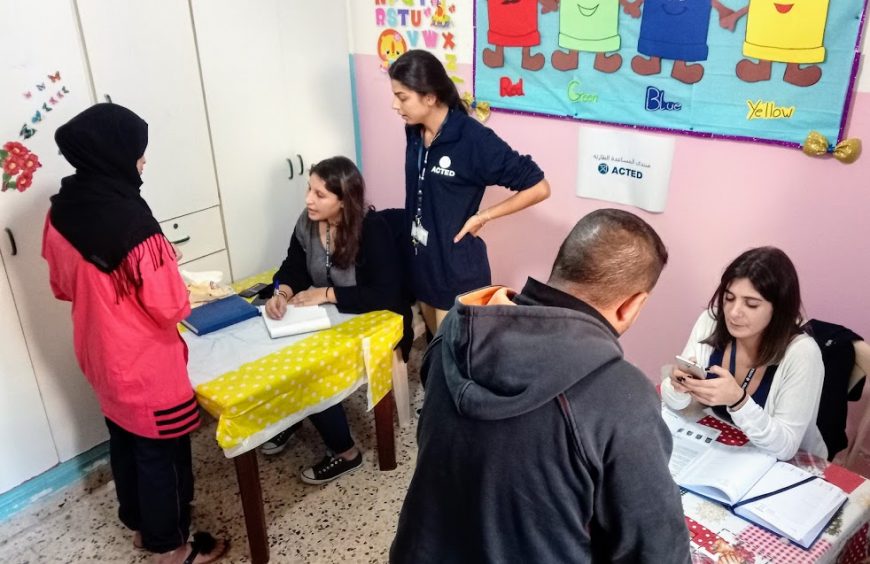For Syrian and Palestinan refugees in Lebanon, the increasing pressure on housing stock and living space continues to place a huge financial burden on families who struggle to keep up with swelling rent prices. Before ACTED’s intervention, Wafaa, a Syrian mother living in Said Ghawash refugee camp in the Beirut suburbs was forced to pull her 12 year old child from school to ensure she and her four children wouldn’t be evicted.
Wafaa’s life, like the lives of the 5.6 million refugees who fled violence in Syria, was totally upended by the conflict.
From within her informal settlement, she is compelled to be the sole breadwinner in her household, with her disabled husband being severely ill and suffering from disabilities that prevent him from working. Her three youngest children are enrolled in school, while the eldest needed to drop out to support his mother in light of the mounting economic stress. Like most refugees in Lebanon, Wafaa had to resort to negative coping strategies, including child labor, in order to survive. This also included sending all four children onto the streets of Beirut to work during their summer holidays.
I was obliged to send all my four children to work during their summer breaks before school resumes, or else we wouldn’t be able to survive. They sell colorful balloons for children on the streets.
Cramped conditions, poverty and disease
Wafaa and her sons, aged 4, 10, 11 and 12 were having immense difficulty coping with their new circumstances. To make ends meet, Wafaa cleaned other homes in her neighborhood. Their living conditions were extremely poor, worsening every day, and their mental wellbeing was greatly affected by their overcrowded living space.
All six of us eat, sleep and live in a single small room. The young boys are growing up without any privacy –all of us have been stripped of our privacy.
Adding to her struggles, Wafaa couldn’t afford to vaccinate her children to protect them from illnesses, thus in turn exposing them preventable (sometimes deadly) diseases and infections such as: polio, rubella, mumps, and measles.
I struggled to feed my children and support my husband. The rent represented a huge burden for me. We were constantly going further into debut because our financial means were never suffficient to cover our shelter and food costs.
Assistance through choice

In order to help refugees meet their food, water, healthcare and shelter needs, ACTED, with funding from the U.S. Department of State Bureau of Population, Refugees, and Migration began a multi-purpose cash assistance and housing upgrade program targeting Beirut’s informal settlements.
As part of this one-year program. Wafaa and her family benefited from monthly cash transfers. The assistance gave Wafaa the opportunity to meet her children’s most basic needs, while releasing her from the constant fear of eviction and bringing a sense of peace and security for the first time since their displacement.
More importantly, throughout the during of the assistance, Wafaa was able to allow her children to focus solely on their education and refrain from working on the streets.
I was finally able to reduce the amount of debt and pay the rent on time. We are thankful for the assistance which the agencies provided which met our urgent needs and are hopeful for a better future filled with wider opportunities.